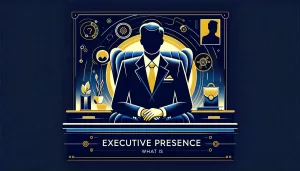In an era filled with information and diverse viewpoints, discerning whom to trust and listen to has become increasingly complex.
The Latinpresarios Thought Leadership Archetype Model provides a structured approach to navigate this landscape by sharing thought leaders examples and categorizing them based on key variables.
This model aids individuals in identifying the type of guidance they are seeking, whether for learning something new or leveraging expert input for decision-making.
Contents
Variables of the Thought Leader Types Model:
Theory or Practice:
This dimension assesses the balance between academic knowledge and practical experience in a thought leader’s background.
Understanding this can help you decide whether you need insights grounded in rigorous research or real-world application.
Level of Sophistication:
This variable evaluates the complexity of a thought leader’s ideas and their communication style, which can range from highly specialized language to more accessible content.
This helps gauge whether their message aligns with your cognitive preferences and needs.
Exclusive vs. Inclusive:
This aspect looks at the platforms thought leaders use to share their insights and how broadly they engage with different audiences.
It helps you understand whether their insights are readily accessible or confined to more exclusive circles.
Scope of Ideas:
This measures the breadth of topics a thought leader covers, from specialized expertise to a wide array of subjects.
This can guide you in choosing someone for depth in a specific area or diverse perspectives on broader issues.
Innovation and Impact:
Evaluating whether a thought leader is introducing new concepts or repackaging existing ideas can be crucial for those looking for cutting-edge insights versus foundational knowledge.
Motivation:
Understanding whether a thought leader is driven by fame, fortune, or freedom can provide context for their content and advice, helping you discern the authenticity and bias in their guidance.
Utility of the Thought Leader Types Model
By categorizing thought leaders into archetypes based on these variables, the model offers a nuanced framework to help individuals tailor their sources of information and advice to their specific needs.
For example, someone looking to stay ahead in a fast-evolving tech field might lean towards a “Revolutionary” for groundbreaking insights, while a person seeking practical business strategies might find more value in the wisdom of a “Pragmatic Practitioner.”
This model empowers individuals to critically assess the vast landscape of thought leadership, enabling more informed decisions about whom to trust and follow.
It encourages a mindful approach to information consumption, emphasizing the importance of aligning the choice of thought leaders with one’s personal, educational, or professional objectives.
The Different Types of Thought Leaders
| Type/Variable |
The Visionary Scholar |
The Pragmatic Practitioner |
The Charismatic Influencer |
The Niche Expert |
The Revolutionary |
The Cultural Icon |
| Theory or Practice | High on theory, often holding advanced degrees and academic positions. | Leans heavily towards practice, with substantial experience in industry or as an entrepreneur. | May not have formal education in their area of influence but possesses a strong practical understanding or personal experience. | Balanced, with solid academic background and practical experience in a niche area. | A mix, often with a strong theoretical foundation complemented by radical practical applications. | This archetype is characterized more by practice in a specific skill, such as music, acting, or entertainment, rather than traditional academic theory.
Their expertise is in their craft and personal brand, not necessarily in the topics they influence. |
| Level of Sophistication | Communicates complex ideas, often appealing to an audience with higher education and intellectual interests.
Their ideas might target the top of Maslow’s hierarchy, focusing on self-actualization and cognitive needs. |
Ideas are practical and accessible, designed to be directly applicable, often addressing the lower to middle levels of Maslow’s hierarchy, such as safety, belonging, and esteem needs. | Communicates in an engaging, relatable manner, often resonating with a wide demographic.
Ideas might touch on various levels of Maslow’s hierarchy, depending on the content. |
Tailors communication to the niche audience, which can vary in education and socioeconomic status.
Ideas often aim at solving specific problems, which might relate to esteem and self-actualization needs. |
Advanced, challenging conventional thinking and often engaging with an intellectually curious audience.
Their ideas are transformative, targeting self-actualization and transcendence needs on Maslow’s hierarchy. |
Their communication is highly accessible and designed to resonate with a broad audience.
The sophistication of their messages can vary greatly, often tailored to fit the branding and style that made them famous. Their influence can span across various levels of Maslow’s hierarchy, depending on the nature of the products or lifestyles they endorse. |
| Exclusive vs. Inclusive | Tends to be more exclusive, sharing insights in academic journals, conferences, and esteemed university settings. | Inclusive, using platforms like social media, blogs, and public speaking events to reach a broad audience. | Highly inclusive, leveraging platforms like YouTube, Instagram, and podcasts to reach a vast audience. | Selectively inclusive, sharing knowledge in specialized forums, niche publications, and targeted social media groups. | Can be exclusive in terms of the intellectual depth of their work but seeks to reach a broader audience to incite change. | Highly inclusive, with a significant presence on mainstream social media platforms, reality TV, and other mass media channels, reaching millions worldwide. |
| Scope of Ideas | Often focused on a specific domain but can introduce groundbreaking theories within that realm. | Ideas are typically focused on practical applications within their area of expertise. | Can vary widely, often speaking on a range of topics beyond their initial area of expertise. | Highly focused, rarely straying from their area of deep expertise. | While focused on specific areas, they push the boundaries far beyond the current scope, often intersecting various disciplines. | The scope is often broad and not limited to their initial area of fame.
Cultural icons can influence fashion, lifestyle, political opinions, and even health and wellness trends, despite lacking formal expertise in these areas. |
| Innovation and Impact | High on innovation, contributing new knowledge and perspectives to their field. | More about applying existing knowledge in innovative ways rather than creating new theories. | Impact is significant in terms of reach, though ideas may not always be new. The innovation lies in presentation and engagement strategies. | Highly innovative within their niche, pushing the boundaries of specialized knowledge. | Extremely high, aiming to redefine existing paradigms and create significant societal shifts. | The innovation is often in how they brand and market themselves, transforming their personal image into a versatile platform for various endorsements and influences.
Their impact is more about shaping cultural trends and consumer behaviors than contributing new ideas or knowledge. |
| Motivation | Motivated by a desire for intellectual freedom and the advancement of knowledge. | Can vary but often driven by a mix of fortune (building a business or consultancy) and the desire to have a tangible impact on people’s lives. | Primarily fame, with a strong emphasis on building a personal brand and engaging with a large following. | Driven by a mix of freedom to explore their niche deeply and fortune from being a leading expert in a specific area. | Primarily driven by freedom—the freedom to challenge, innovate, and transform society. | The primary motivations can include fame, as maintaining and expanding their visibility is crucial, and fortune, given the lucrative nature of endorsements and branded partnerships. |
Thought leaders examples in each category
The Visionary Scholar
Noam Chomsky: Renowned linguist, philosopher, and cognitive scientist, known for his revolutionary theories in linguistics and his critiques of media and politics.
Brene Brown: Research professor who has spent decades studying courage, vulnerability, shame, and empathy, and is well-known for her TED talks and books on these subjects.
Yuval Noah Harari: Historian and author of bestsellers like “Sapiens” and “Homo Deus,” known for his profound insights into human history, society, and future.
Pragmatic Practitioner
Indra Nooyi: Former CEO of PepsiCo, known for her leadership and innovative business strategies that significantly impacted the company’s growth and focus on healthier products.
Sheryl Sandberg: COO of Facebook and author of “Lean In,” recognized for her practical advice on leadership and empowerment, especially for women in the workplace.
Tony Robbins: Entrepreneur, best-selling author, and life coach known for his seminars and self-help books that provide practical strategies for personal and professional development.
The Charismatic Influencer
Gary Vaynerchuk: Entrepreneur and internet personality who uses social media to share advice on marketing, business, and entrepreneurship.
Oprah Winfrey: Media mogul and philanthropist who has influenced millions through her talk show, book club, and philanthropic efforts.
Jay Shetty: Former monk turned motivational speaker and content creator, known for sharing wisdom and insights on mindfulness, relationships, and purpose.
The Niche Expert
Esther Perel: Psychotherapist and author, known for her expertise in relationships and sexuality, frequently speaking at conferences and on podcasts about modern relationships.
Neil deGrasse Tyson: Astrophysicist and science communicator, specializing in astronomy and science education through books, TV shows, and public appearances.
Jane Goodall: Primatologist and conservationist, renowned for her detailed observations of chimpanzees in the wild and her efforts in conservation and animal welfare.
The Revolutionary
Elon Musk: CEO of SpaceX and Tesla, known for his practical application of technology to revolutionize industries like automotive and space exploration.
Steve Jobs: Co-founder of Apple Inc., known for revolutionizing multiple industries, including personal computing, music, phones, and tablets.
Malala Yousafzai: Pakistani activist for female education and the youngest Nobel Prize laureate, known for her advocacy for education and women’s rights in the face of life-threatening opposition.
The Cultural Icon
Kanye West: Rapper, producer, and fashion designer, whose influence extends beyond music into fashion, politics, and culture.
Kim Kardashian: Media personality, socialite, and businesswoman, known for her influential presence in reality TV, social media, and the beauty industry.
Rihanna: Singer, actress, and entrepreneur, influential not only in music but also in fashion and cosmetics with her Fenty Beauty line.




